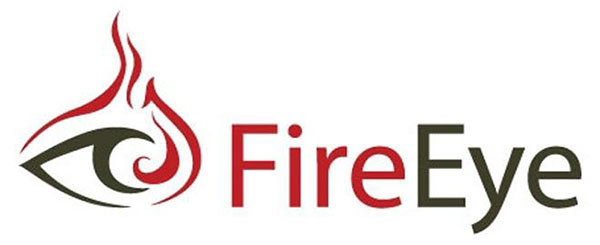Snapchat, Pinterest, Instagram, Vine–so many new internet trends, and so little time to keep up! And yet, old giants like Microsoft and Apple continue to corner much of the marketplace, so they are obviously keeping up somehow. Just how do they do it? Well, by buying lots and lots of small hip new companies!
Bought such purchases don’t always work. From Microsoft’s failed takeover of Nintendo to Facebook’s unsuccessful attempt to assimilate Twitter before it could fly, there have been dozens of failed mergers and hostile takeovers in the tech sector of the last fifteen years. Here are some of the biggest busts in terms of dollars and potential impact–leaving plenty of room to imagine the world that might have been had these purchases succeeded.
10. Microsoft and Nintendo (1999)

In the late 1990s, Microsoft realized that there was a vast market potential for video games and video game platforms–and that they didn’t know a thing about how to enter the market. While Nintendo had a hit with its Nintendo 64–the world’s first 64-bit game console–the company was still small enough that Microsoft, near the height of the tech bubble, thought they could get the cash to make the purchase. And so they tried: $25 billion was floated, but Nintendo CEO Hiroshi Yamauchi declined. Microsoft would likely have shut down the soon-to-come GameCube in favor of focusing on (and stealing the technology for) its forthcoming Xbox. Instead, the world got both–and perhaps most importantly, it got the Nintendo Wii and a three-part race for the future of gaming between Nintendo, Microsoft, and Sony.
9. Citrix and Box.net (2013)

Two relatively unknown corporations, Citrix Systems and Box.net are nevertheless big business in the behind-the-scenes world of cloud computing. Citrix was one of the early innovators of the “software-as-a-service” model where instead of purchasing software and installing it once, users could rent access to software that can be hosted remotely on the internet. This concept is so mainstream that we now hardly notice it: most of our email, our social lives, and even our files are now found online only! Box.net is a customer-side service similar to Dropbox, and Citrix tried to take it over with a $600 million earlier this year. It didn’t take–and Box.net has since been valued at an even greater value.
8. Yahoo/Facebook and Foursquare (2010)

In 2010, Foursquare was a hot-and-hip new piece of social media, combining online life with real-world restaurants and other destinations in a social-friendly way that has since become ubiquitous. Today, you can “check in” on Facebook, Yelp, and more–simply thanks to Foursquare. Its CEO, Dennis Crowley, thought the company should be worth $150 million, more than Yahoo, Facebook, or anyone else was willing to pay. Unfortunately for him, the idea of “checking in” was too easy to copy, and his concept wasn’t catchy enough to build out an entire new network like Twitter or Instagram have done–after all, it’s just telling your friends where you went. While it might go under in the not-too-distant future, Foursquare’s memory will certainly live on, every time anyone Checks In on any of its vastly more successful competitors.
7. Cisco and FireEye (2013)

Cisco, a leading computer security firm, tried to gobble up relative newcomer FireEye–itself a ten year old firm, but on something of a hot streak lately. FireEye, like so many newcomers, is a cloud-based service protecting against malware and other security threats, and as such was under scrutiny from established players. Cisco offered a bid in the $2-3 billion range, which was promptly rejected, only to see FireEye have an IPO that has since valued the corporation at $6 billion. Like many in the business, FireEye saw value in remaining independent and in control of its own destiny–a thought that surely strikes fear into the hearts of CEOs at older but slower-paced firms.
6. Facebook and Twitter (2008)

While it’s hard to imagine now, given their fierce rivalry, Facebook once sought to partner with Twitter–although a better metaphor may be that Facebook sought to strangle Twitter in its crib, before it could grow into a worldwide hit. Twitter thought that it could monetize itself quite effectively, whereas it felt Facebook was behind the times on that department. Even worse, it thought Facebook was probably overvalued by the market. This was an important consideration, since Facebook was still privately held and didn’t have a great deal of cash lying around, and therefore the bid they offered for Twitter was entirely in (overvalued?) Facebook stock. Things obviously worked out for Twitter: while Facebook once offered $500 million, it’s currently valued at $24 billion. Although, on the other hand, Facebook may not have been overvalued: it currently sits on a $114 billion valuation.
5. Google and Friendster (2003)

Before there was Snapchat, Instagram, Twitter, or even Facebook, there was Friendster: an early pioneer in social networking. However, in social networking, the network is (unsurprisingly!) critical. The one with the largest network wins, and a fast-growing network is something that all the other listed above had, and Friendster was unable to keep. This meant that when they passed up Google’s offer in favor of future riches, the riches never materialized, and Friendster eventually accepted a relatively paltry offer of $26.4 million–hardly enough to keep up with the Zuckerbergs et al on the rest of this list.
4. Microsoft and Yahoo (2008)

The rise of Google throughout the early 2000s seemed like it was never going to wane, and other big internet industries began coming up with ways to adjust their own strategies accordingly. In an attempt to bring big companies together in order to threaten Google’s own power, Microsoft attempted to buy Yahoo for $44.6 billion. Yahoo chose to turn down the bid for being too low, which ended up being an obviously questionable decision in the preceding months after the rejection when Yahoo saw its stock fall significantly.
3. Google and Groupon (2010)

Back in 2010 Google offered to buy daily deals website Groupon, a website which at the time was growing rapidly and expanding to Europe and South America. When Google offered to purchase the company for $6 billion Groupon denied the offer, which seemed reasonable since at the time they were making about $1 billion annually and boasting around 35 million users, and projections looked good. Unfortunately, Groupon probably has a lot of regrets because shortly after denying the offer they began to lose popularity along with profits. That’s why you don’t reject an offer from the all mighty Google!
2. Facebook and Snapchat (2013)

With more than 400 million images sent a day, Snapchat is one of the fastest growing social media apps in the world. As reported by Business Insider, the average Snapchat user receives around 20-50 snaps per day and around 9% of smartphone users in the United States have the app installed on their phones. Facebook first offered to purchase Spapchat earlier this year with a $1 billion proposition that was ultimately rejected by the growing app company. Facebook then offered to buy Snapchat a second time in 2013 for $3 billion–which was once again rejected. CEO Evan Spiegel reports that the the company is waiting to see how growth progresses during 2014 before looking to sell the rights to the app, but all signs point to a promising future for them.
1. MySpace and Facebook (2005 and 2006)

Remember, way back in the dark ages of the internet when MySpace was the queen of all social media websites, and it seemed like nothing could ever change that? Well, it turns out we were all wrong, and MySpace’s people were the wrongest of us all. MySpace made a number of questionable business decisions back when it was in its prime, ultimately leading to its downfall as the most popular social media website in the world. Very possibly one of the website’s worst decisions was passing up the opportunity to buy Facebook–twice–and by 2007 Facebook had more users than MySpace by a landslide. Today Facebook is worth around $116 billion, and MySpace hasn’t been widely used in years. In 2011 MySpace was sold for a mere $35 million; pennies to what it could have been worth if it had only merged with Facebook when it had the chance.
What factors contribute to companies rejecting acquisition offers?
Understanding why companies reject buyout offers can provide valuable insights into the strategic thinking and goals that drive business decisions. For many companies, declining acquisition offers is not solely about price but can stem from a variety of reasons. Here are some key factors that influence a company’s decision to reject a buyout offer:
- Belief in Long-Term Growth: Many companies, especially those experiencing rapid growth, may see greater potential in remaining independent. Leaders often believe that the business’s value will grow significantly over time, possibly surpassing the acquisition offer.
- Desire for Autonomy and Control: For some founders and CEOs, maintaining control over their business vision is paramount. They may fear that joining a larger entity could lead to changes in company culture, product direction, or management practices that conflict with their values and vision.
- Concerns Over Cultural Mismatch: Acquisitions often result in integration challenges. Companies may decline offers if they feel that the acquiring firm’s culture or operating style differs too greatly, which could impact employee morale, productivity, or brand identity.
- Preserving Brand Identity: Many companies work hard to build a unique brand identity. Joining a larger corporation can dilute this identity or even result in rebranding efforts that might alienate existing customers.
- Strategic Focus and Synergies: If the acquiring company’s industry or strategic goals do not align closely with the target company’s direction, leaders may decide the acquisition is not a good fit. They might prefer to focus on partnerships or alliances that allow greater strategic alignment without relinquishing ownership.
- Regulatory and Antitrust Concerns: In some industries, accepting a buyout could raise regulatory concerns, especially if the acquisition might lead to monopolistic control. Companies in highly regulated sectors, such as finance and healthcare, may reject offers to avoid potential legal hurdles.
- Existing Stakeholder Interests: Stakeholders, including investors, employees, and board members, often have significant influence over buyout decisions. If stakeholders do not see the offer as advantageous, they may pressure leadership to decline.
Key Insights
- Significance of Acquisitions: The article highlights how major tech companies like Microsoft, Google, and Facebook have historically tried to acquire smaller, innovative firms to stay competitive and expand their market influence.
- Failed Mergers: Many high-profile acquisition attempts have failed, often due to the target companies’ refusal or misjudgment of their market value and future potential.
- Impact on the Industry: These failed acquisitions have shaped the technology landscape, leading to the continued existence and competition among companies that might have otherwise been absorbed.
- Market Valuation Dynamics: The article illustrates how market valuations and the perceived potential of companies can lead to significant financial decisions, sometimes resulting in substantial regrets for rejecting acquisition offers.
- Strategic Considerations: The motivations behind these acquisition attempts often include gaining technological expertise, increasing market share, or eliminating potential competitors.
FAQ
- Why do major tech companies attempt to acquire smaller firms? Major tech companies acquire smaller firms to gain technological expertise, expand their market share, introduce new products or services, and eliminate potential competition. These acquisitions help them stay competitive in a rapidly evolving market.
- What are some reasons that acquisition attempts fail? Acquisition attempts can fail due to various reasons, including disagreements over valuation, the target company’s desire to remain independent, cultural mismatches, regulatory hurdles, and sometimes misjudgments about the potential success of the acquisition.
- Can you provide examples of failed acquisitions mentioned in the article? Yes, some examples include Microsoft’s failed attempt to buy Nintendo in 1999, Yahoo and Facebook’s unsuccessful bid for Foursquare in 2010, and Google’s rejected offer to acquire Groupon in 2010. These and other examples highlight the complex nature of mergers and acquisitions in the tech industry.
- How do failed acquisitions impact the technology industry? Failed acquisitions can lead to continued competition and innovation in the industry. For instance, the rejection of Microsoft’s bid for Nintendo allowed both companies to continue developing their gaming platforms independently, benefiting consumers with more options and innovations.
- What lessons can be learned from these failed acquisitions? One key lesson is the importance of accurately assessing the value and future potential of companies. Additionally, understanding the strategic fit and cultural alignment between the acquiring and target companies is crucial for the success of an acquisition.






















Leave a comment!